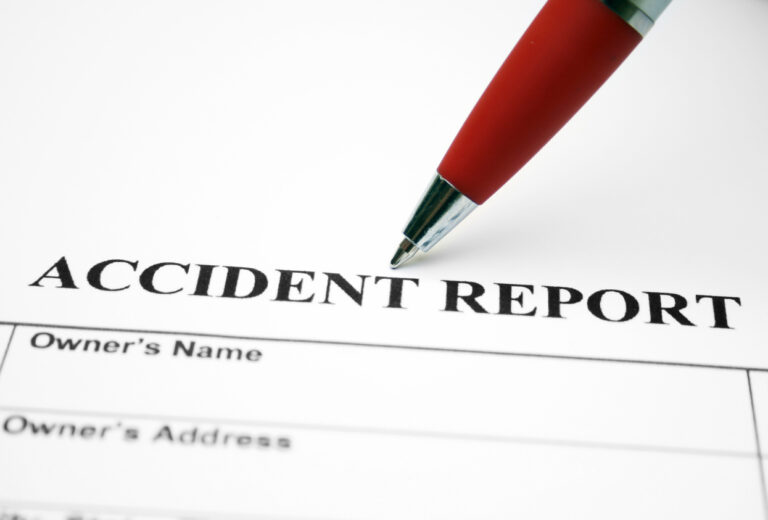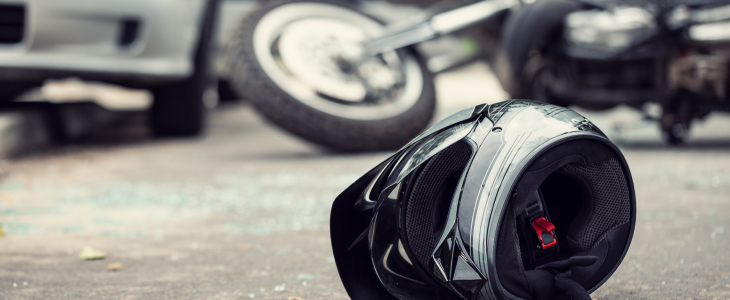Understanding Motorcycle Accident Claims
Motorcycle accident cases in North Dakota differ from car accidents in several key ways. One key difference is that while North Dakota auto insurance policies must include no-fault coverage, that rule doesn’t apply to motorcycles. Without no-fault benefits, you must either cover your injuries yourself or file a claim against whoever caused the crash to seek compensation from them. Most of the time, you’ll be dealing with the other driver’s insurance company, as most people have insurance to protect them financially from injuries and property damage they cause in a collision.
Another vital distinction between car crashes and motorcycle wrecks is the severity of the injuries. Car crashes can (and often do) cause devastating injuries, but the driver and passengers have the car’s frame to insulate them from the impact. Motorcycle riders don’t have that protection, leaving them directly exposed to the full force of a crash. That lack of protection means motorcycle riders are more likely to suffer permanent, life-altering injuries, such as paralysis or brain damage.
The last essential difference between motorcycle and car accidents is proving liability for the collision. Many people, including many insurance companies, have unfair stereotypes of motorcycle riders and assume they always cause crashes because they’re dangerous. In truth, many motorcycle accidents happen because drivers are careless, such as not looking for motorcycles in their blind spots before passing or following too closely behind motorcycles.
Here’s the bottom line: You have an uphill battle to recover compensation for your injuries. Any mistake in your case could block you from claiming the resources you need. Your best chance of winning your case is to hire a motorcycle accident lawyer to guide you through the legal process.
At the Accident Scene
Your eventual motorcycle accident case begins at the scene of the crash. To start, call 911 immediately and let law enforcement officials know what happened. They’ll send emergency medical personnel to see if you or anyone else in the crash needs emergency treatment.
There’s another reason it’s critical to call 911 immediately. You want the police to come and investigate the crash. You’ll likely need the report when you file a personal injury claim (most insurers require them), and the crash report provides a baseline account of what happened. The crash report might also contain evidence that supports your claim, such as any tickets the officer issued against the driver who hit you. For example, a speeding or reckless driving ticket can help demonstrate how the driver who hit you acted carelessly.
After calling 911, get as much information as you can from the other driver. Some key information to gather includes the driver’s name, address, and phone number. Also, ask them about their insurance information and get their vehicle registration number. If they’re a commercial driver, ask them for their employer’s contact and insurance info.
Finally, it’s crucial to tell the police everything you remember about the accident when they arrive. However, watch what you say. Avoid speculating about who caused the crash, and don’t say anything that might implicate you. Even something as seemingly innocent as saying you’re sorry could hurt your legal case, as some insurers will see an apology as an admission of guilt (which it isn’t).
The Risk of Not Calling the Police
If you suffered apparently minor injuries in a motorcycle crash, the other driver might ask you not to call the police. They might say that involving the police will only make things more complicated, or that their insurance premiums will go up. But no matter what they say, call the police regardless. You need a crash report for your case, and not calling the police means they won’t investigate.
Furthermore, not calling the police means there’s no neutral perspective on the crash. In the absence of concrete evidence, your case might become a “he said, she said” battle, which can make it harder to recover compensation for your injuries.
The Consequences of Not Gathering Evidence
Evidence from a motorcycle accident scene can disappear or deteriorate within hours or days. If you don’t collect as much evidence as possible before seeking medical treatment, you might not have the proof you need to win your case. Therefore, take pictures or videos of your injuries, the damage to your motorcycle, and the accident scene before seeking medical attention (if your injuries allow).

Dealing with Other Parties Involved
Interactions with the other driver in a motorcycle crash can be tricky. You don’t want to antagonize someone, but it’s also critical to protect your rights. Be assertive without being rude or putting yourself in danger when asking the other driver for their information.
You might also hear from the other driver or their insurance company soon after the crash. They might offer a quick settlement, but whatever they offer likely won’t meet your needs. You might not even understand the full scope of your injuries for weeks after a collision, and a premature settlement means you can’t seek additional compensation.
Finally, don’t contact the other driver or their insurer after a motorcycle accident. You might accidentally say something that implicates you for the crash or minimizes your injuries. You’re best off hiring a lawyer and letting them deal with the other driver and their insurance company. Motorcycle accident lawyers understand the nuances of these cases and can protect you from jeopardizing your compensation.
Why You Should Never Accept Money at the Scene
It’s tempting to accept money at the scene of a motorcycle accident, but don’t do it. If you take any money, you might give up your rights to additional compensation later. Whatever you would receive at the scene won’t cover all your losses, so you’re better off turning the money down and pursuing compensation through other means.
The Dangers of Informal Agreements Not to Report the Accident
Similarly to not accepting money at the scene of a motorcycle accident, don’t make any informal agreements with the other driver, particularly if they ask you not to report the crash. For one thing, there’s no guarantee they won’t renege on their deal and report the accident to the police anyway. If the other driver reports the accident after the fact, they might twist the facts to make you look bad, keeping you from proving they’re to blame. It’s a classic example of the prisoner’s dilemma.
Furthermore, not reporting the accident means you can’t file an insurance claim against the other driver. You will likely need the money from an insurance claim for your recovery, so not reporting the accident is ultimately self-defeating.
Medical Attention and Documentation
Properly documenting your injuries is critical in a motorcycle accident claim, as insurance companies base claim amounts on the severity of your injuries and their effects. If you don’t have adequate documentation, you might not recover all you need.
To that end, tell your doctor about all your symptoms after an accident. Make sure they note every detail, but don’t exaggerate or make up symptoms. Any exaggerations or fake injuries will make an insurer think you’re lying and cause them to deny your claim.
The Importance of Prompt Medical Treatment
Chances are, emergency responders will take you to a hospital after a motorcycle crash. If they don’t, see a doctor immediately anyway. You might have hidden injuries that might get worse without swift treatment, and you don’t want to risk any potentially fatal complications.
How Delaying Medical Care Can Affect Your Claim
Seeking immediate medical attention is also vital for preserving your right to compensation. If you wait to see a doctor, that tells the insurance companies your injuries aren’t as bad as you say. You don’t want to reduce your compensation or face a denied claim, so make sure to seek immediate medical care.
Communicating About Your Accident
We know you want to talk about what happened to you in a motorcycle accident. You can speak freely with your lawyer, but you want to avoid discussing the accident with others.
Risks of Discussing Your Accident with Others
The main risk of discussing your accident with people other than an attorney is that you might say something that hurts your case. For example, you might say your injuries aren’t that bad, only to discover later on that you have a long-term disability or something similar that you didn’t know about initially. Insurance companies will seize on any inconsistencies in your statements as proof that you’re either exaggerating or your injuries aren’t severe.
You must also avoid discussing the accident on social media, as insurance companies can find your posts and use them against you. If someone posts a photo of you somewhere other than your home, for example, that picture could undermine your argument about how your injuries limit your activities. You’re best off staying off social media entirely until your case concludes.
Keeping Communications Within Legal Counsel
Once you hire a motorcycle accident lawyer, most of what you say to them is protected under a legal principle called attorney-client privilege, meaning your statements aren’t admissible in court. This privilege helps you in two ways. First, it means you can speak freely with your lawyer, which helps them be a better advocate for you. Second, it means you don’t have to worry about something you say to your lawyer hurting your case.

Seeking Legal Advice
Finally, one common mistake after a North Dakota motorcycle crash is waiting too long to talk to a lawyer. You have a lot on your plate after an accident, but waiting to seek legal advice can have devastating consequences.
First, waiting to hire an attorney means they can’t investigate the accident before critical evidence disappears. Without this evidence, you’ll have a more challenging time proving the other driver caused your injuries and recovering compensation.
Second, you want to give your lawyer the maximum possible time to build your case. It takes a while to investigate a crash, gather your medical records, document your financial losses, and negotiate a fair insurance settlement. If your case goes to trial, your lawyer will need extra preparation time.
While you have six years from the crash date to file a motorcycle accident lawsuit, you don’t want to wait that long to seek compensation. You have urgent needs now, and contacting a lawyer right away can help you recover compensation more quickly.
Why Choose Pringle & Herigstad, P.C.?
Our Minot & Grand Forks motorcycle accident lawyers have over 100 years of combined experience and can make this process as painless as possible. We’ve recovered substantial compensation for our clients, and our testimonials demonstrate our commitment to justice and customer service.
We pride ourselves on providing personalized, individual attention to every client. We’ll promptly answer any questions or concerns and keep you in the loop at every stage of your case.
We also know you’re already experiencing financial stress and don’t want to add to your burden. That’s why we don’t charge any upfront fees. We only get paid if you recover compensation, which pushes us to maximize your financial recovery.
Contact Our North Dakota Motorcycle Accident Attorneys
The biggest mistake you can make after a motorcycle accident is not contacting a lawyer right away. Call Pringle & Herigstad, P.C., today or complete our contact form for a free consultation with a motorcycle accident attorney in North Carolina. We stand ready to assert your rights and demand fair compensation for what you’ve suffered.
